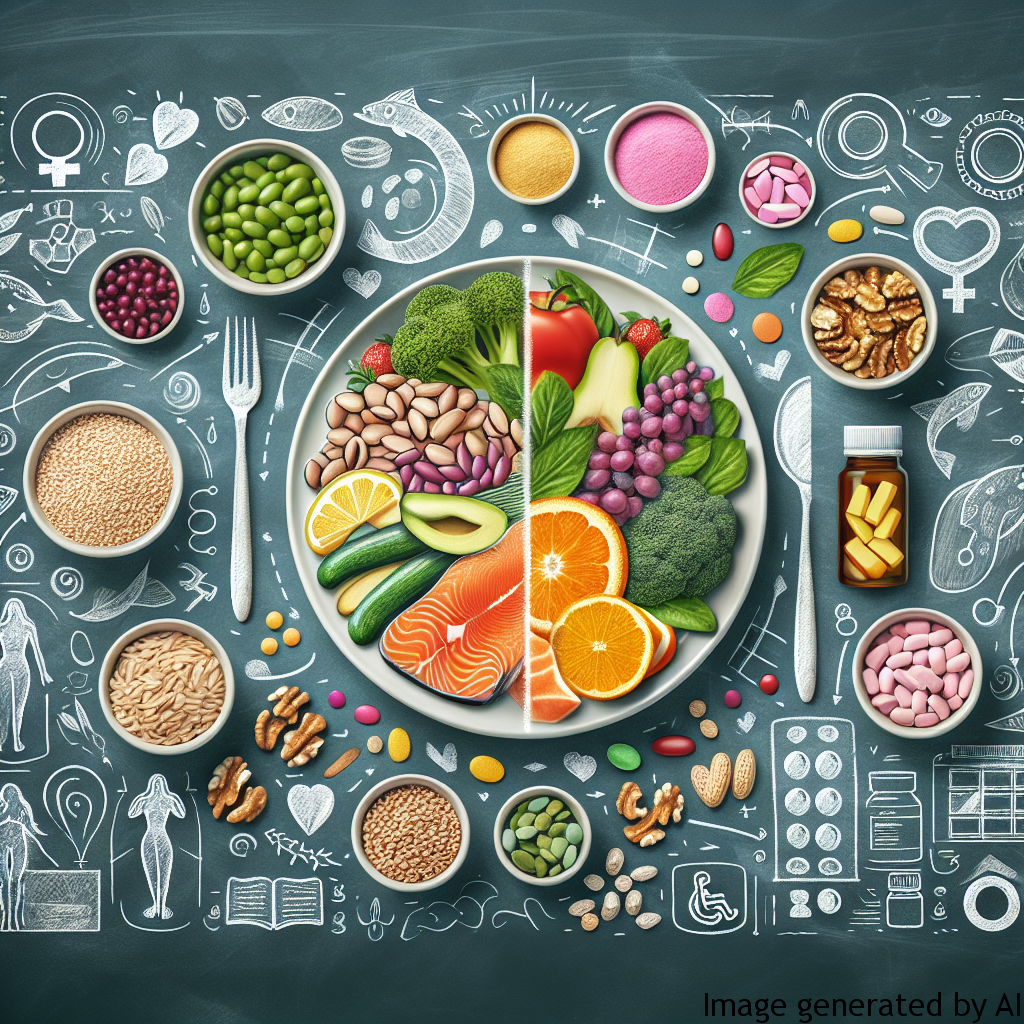Introduction
Nutrition is an integral aspect of health that can have profound implications on various body systems, including the reproductive system. It involves the intake of a balanced diet consisting of essential vitamins, minerals, proteins, carbohydrates, and fats that contribute to the overall well-being of an individual. When it comes to reproductive health, nutrition plays a significant role in both men and women, affecting the fertility status, hormone regulation, and overall reproductive system health. This article will discuss the role of nutrition in supporting reproductive health.
Nutritional Requirements for Men and Women for Reproductive Health
The nutritional needs of men and women differ on several aspects, including metabolic rate, muscle mass, hormone levels, etc. These differences also extend to the requirements for optimal reproductive health.
Nutrition for Men’s Reproductive Health
Men’s fertility mainly revolves around sperm health. Nutrients like zinc, selenium, vitamin C and E, folic acid, CoenzymeQ10, and omega-3 fatty acids have been known to improve sperm count, mobility, and structure. Moreover, a healthy lifestyle that includes regular physical activity, well-rounded diet, no smoking, and limited alcohol can further enhance fertility and overall reproductive health in men.
Nutrition for Women’s Reproductive Health
For women, reproductive health includes menstrual regularity, ovulation, implantation, and growth of the fetus. This requires a diet high in iron, folic acid, calcium, vitamin D, B vitamins, antioxidants, and balanced proteins and fats. Moreover, maintaining a healthy weight is crucial as both underweight and overweight conditions can impair fertility in women.
The Impact of Nutrition Deficiency on Reproductive Health
Deficiencies of specific nutrients can significantly impact reproductive health. For instance, iron deficiency can lead to anemia, which impacts fertility in women by inhibiting ovulation and creating an unfriendly environment for a possible embryo. Selenium and zinc deficiency can harm sperm motility and count in men. Therefore, a balanced nutrient-rich diet is essential for maintaining the best reproductive health.
Nutrition Supportive Actions for Reproductive Health
Improving reproductive health through nutrition involves implementing a balanced diet, regular exercise, and healthy lifestyle habits. It’s beneficial to incorporate a variety of fruits, vegetables, lean proteins, whole grains, and healthy fats into the diet. Limiting processed foods, sugars, and alcohol while increasing water intake can also positively impact reproductive health. It’s recommended to consult with a healthcare provider or a nutritionist to create a personalized nutrition plan.
Conclusion
Nutrition serves as a cornerstone for good reproductive health. Both men and women need a variety of nutrients for their bodies to function optimally, particularly when it comes to reproductive health. Ensuring a balanced, nutrient-rich diet alongside a healthy lifestyle can aid in maintaining or improving fertility and overall reproductive health. Though it may seem challenging, the benefits extend beyond reproduction, encompassing overall physical health and well-being, making nutritional mindfulness and education worth prioritizing.

